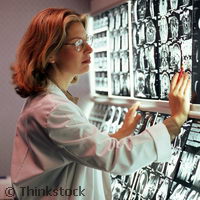A platform to facilitate greater cooperation in neuroscience
The nervous system - made up of the brain, spinal cord and nerves - controls how the body functions. When something goes wrong with this system, the impact can be severe, affecting one's ability to move, speak, swallow and learn. While neurologic diseases - conditions that affect the brain - are more common among the elderly, their prevalence is increasing as life expectancies increase. Addressing neurological disease is therefore a social as well as a medical priority. To this end, NEUROBIOTECH, a NEUROMED-led project, was recently set up in order to establish an international research and innovation community on neuroscience. NEUROBIOTECH aims to pull together experts from across the globe in order to share knowledge and stimulate research activities. The ultimate goal of this community-based approach is to ensure that as many people as possible are able to benefit from advances in neurobiology, from medical professionals to local citizens. The project will enable researchers to work together, and promises to offer solutions for improving healthcare. Scientific knowledge of the nervous system has increased significantly, principally due to advances in molecular biology and computational neuroscience. This has allowed neuroscientists to study the nervous system at a much deeper level. However, greater collaboration is still needed in order to translate this scientific understanding into medical benefits, and this is where NEUROBIOTECH comes in. The project began by launching an invitation to experts interested in sharing methods, knowledge, people and ideas. The new Centre will focus on research fields that promise important breakthroughs, such as genomics - the study and sequencing of DNA - and stem cells. Stem cells are able to self-renew; i.e. to divide and produce identical copies over and over again. This makes them different to specialised cells - like blood cells - which cannot replicate themselves and can therefore be seriously damaged by disease or injury. Experts in these and other specialised fields will be able to use NEUROBIOTECH as a forum to collaborate and share research and ideas, and as a place where they can translate ideas into products or improvements in clinical practice. Indeed, one of the major attractions of the project will be access to state-of-the-art facilities in Pozzilli, Italy and Brussels, including a radioisotope laboratory, a cell factory and an advanced imaging centre. The findings of NEUROBIOTECH will be made available in order to help guide future research policy. The project is being led by NEUROMED, an Italy-based research centre specialising in neuroscience. The centre works in cooperation with the Molise Regional Government, the Italian National Research Council, the Universities of Rome Sapienza, Tor Vergata and Molise. Several foreign research centres and companies have also agreed to participate in the NEUROBIOTECH cluster. The Pozzilli facility is situated in an area that has been hard hit by the economic crisis. Investment in local-based research has the potential to create new high value jobs, and could help to kick-start the regional economy. As a partner of the project, the Molise Regional Government has set aside financial resources for companies and research centres wishing to invest in the region.For more information, please visit: http://www.neuromed.it/?lang=en(opens in new window)
Countries
Italy



